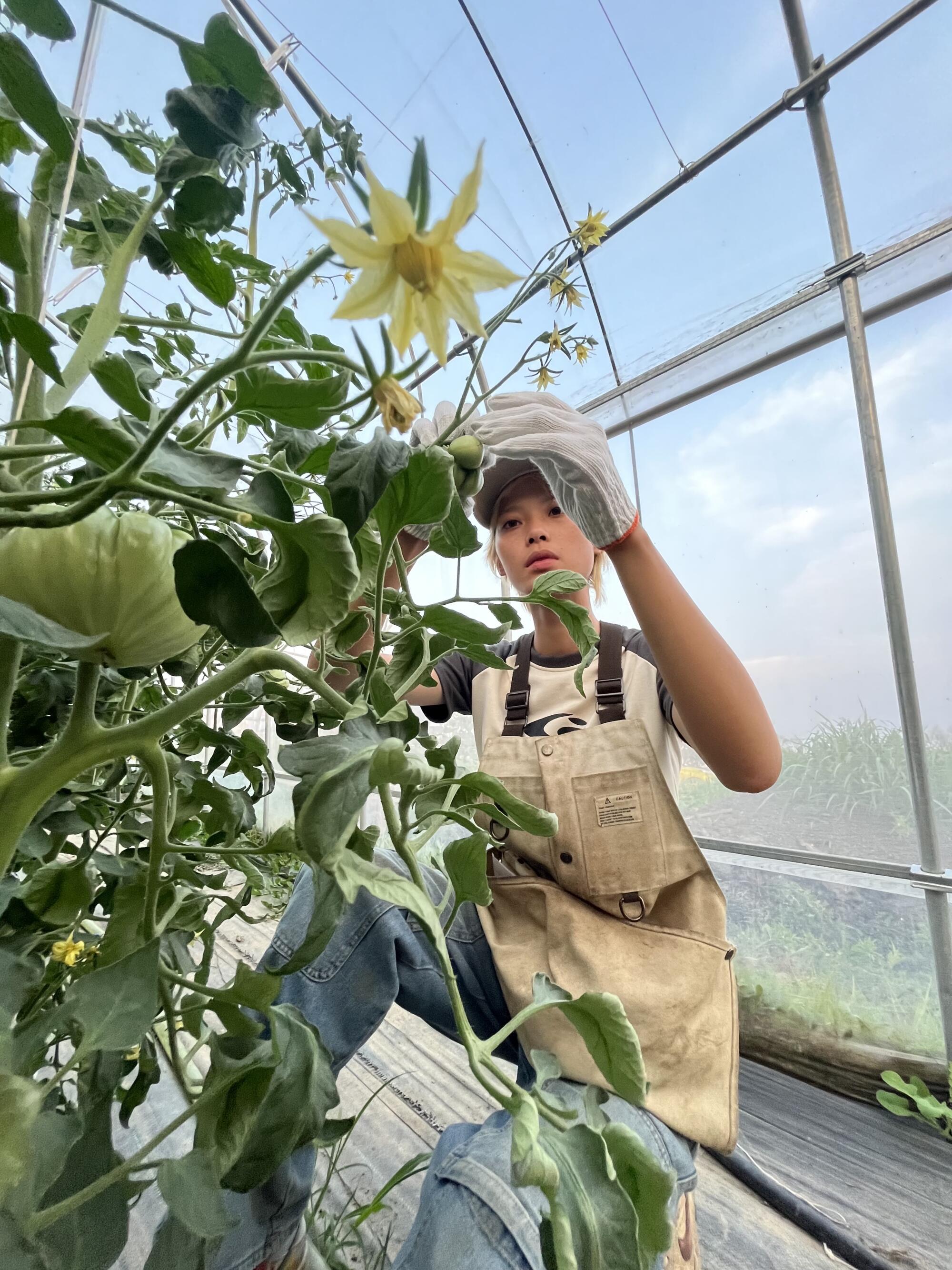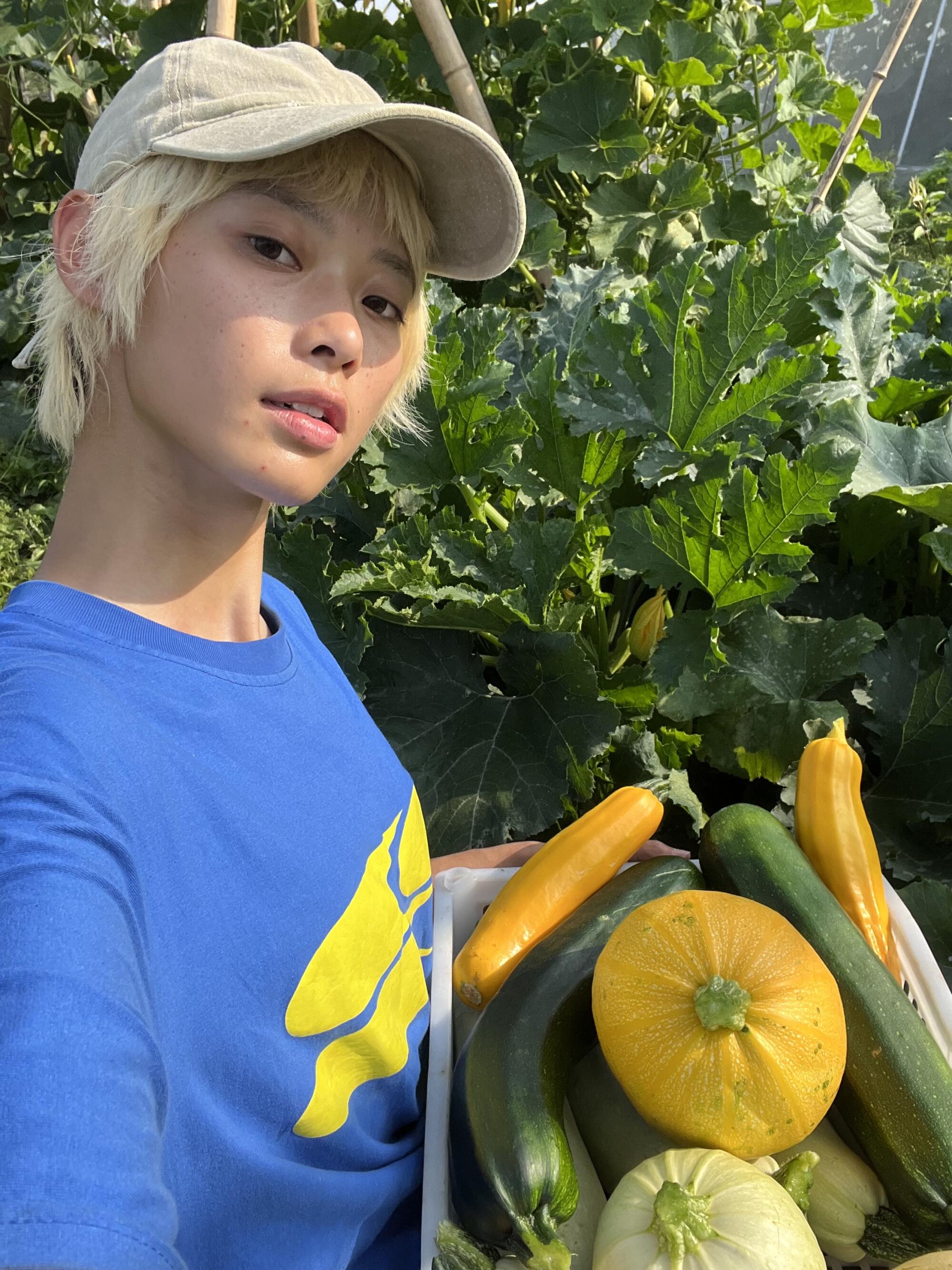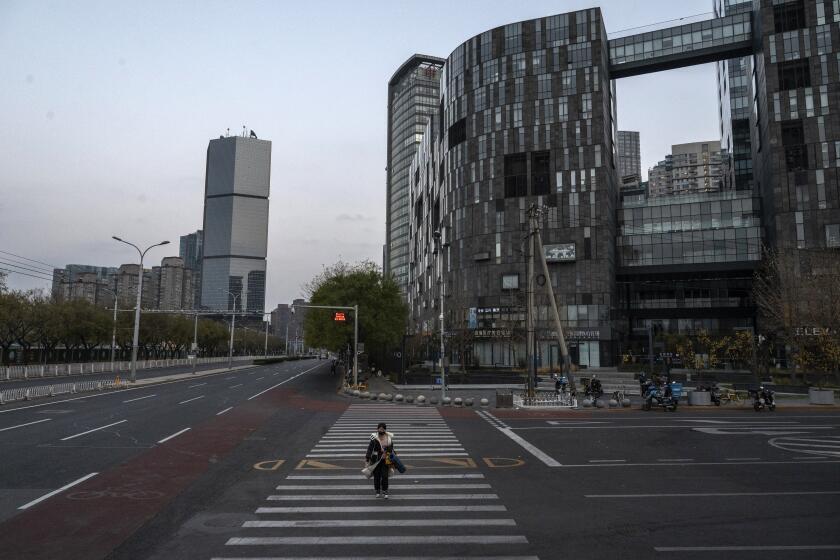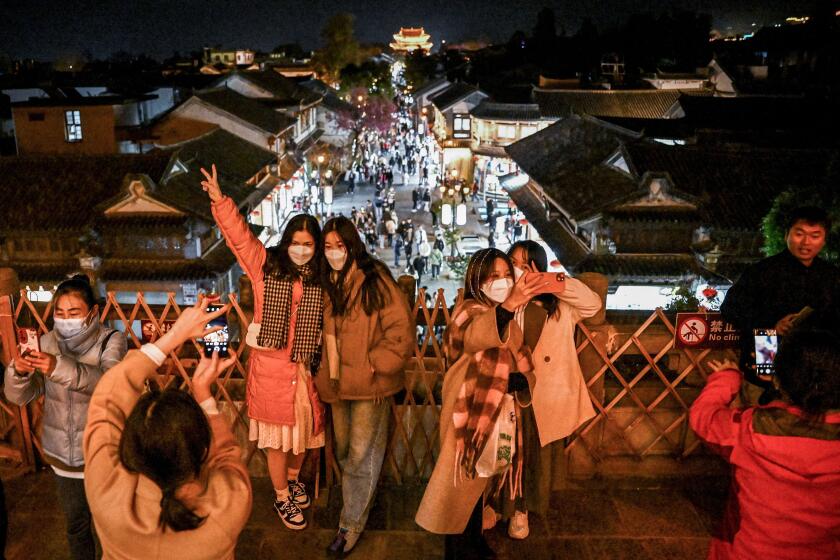
- Share via
TAIPEI, Taiwan — Growing up in one of China’s biggest cities, it never occurred to Liang Yu that she might one day toil in the fields.
In college, she majored in broadcast television, planning a career in film or advertising.
She began to reconsider after she tried growing tomatoes with other students and found they were sweeter than anything available in stores.
“The first time I ate something that I planted myself, I was amazed,” said the 24-year-old from Guangzhou, a city of nearly 19 million.

After graduating, she and her boyfriend rented two acres an hour outside Shanghai, put up a greenhouse and started experimenting with different kinds of seeds.
They became — in the lingo of their generation — “new farmers.”
For decades, urbanization was a defining feature of the Chinese economic miracle, as people left the countryside for the cities and young people came to view office jobs as a ticket to success.
Now a small but growing number of people are moving in the opposite direction, spurred by declining job prospects in the cities, government efforts to lift up rural areas and a sense that a slower pace of life has its advantages.
In 2022, a quarter of new college graduates found work in small cities, towns and villages — up from a fifth in 2018, according to the Chinese higher education consultancy MyCos.
The proportion who went into agriculture, forestry, animal husbandry or fishing climbed to 1.9% from 1.2%. That amounted to more than 200,000 people in 2022.
China lifted its one-child policy nearly a decade ago. A growing number of couples aren’t having any.
The government wants those numbers to grow further. Rural revitalization, a concept introduced by President Xi Jinping in 2017, has become a cornerstone of his national development policy to mitigate income inequality, stimulate local economies and guarantee the food supply.
Last year, with urban youth unemployment topping 21%, Xi called on young graduates to return to rural areas to look for work and “eat bitterness.” In December, the country passed a food security law aimed at achieving “absolute self-sufficiency” in staple grains. The government has also increased funding to support agricultural ventures.
“Policymakers are going to use every single tool in their toolbox to make sure China continues to have ample food at a reasonable price,” said Even Pay, an agriculture analyst at the research and advisory firm Trivium China. “Part of that is persuading young people to pursue a career in agriculture.”
As China’s economy slows, more young people are exploring nomadic lifestyles in a rebuke of societal pressure to work hard, buy a home, start a family.
That’s been a hard sell. As the country has gotten richer, higher learning has traditionally offered a way out of hard labor and low-paid jobs such as construction work and farming.
But growing disillusionment with the status quo among China’s middle class may provide the government a chance to persuade some to return to a more traditional life.
“Five or ten years ago it was unthinkable. Everyone wanted to stay in Beijing or Shanghai,” said Biao Xiang, a director at the Max Planck Institute for Social Anthropology and expert on migration and mobility in China. “We are reaching a tipping point, where more and more people withdraw from the established social norms.”
China’s government is relaxing restrictions on night markets and street vendors to stimulate spending and create jobs, especially for young people.
One of the most popular reality shows in China this year is a sprawling portrayal of farm life. Now in its second season, “Become a Farmer” features a group of aspiring actors and musicians working together to manage 74 acres of farmland.
After the first season aired last year, the participants launched their own produce company, which now has 1.8 million followers on Douyin, the original version of TikTok.

The local government in Hangzhou, where the show was filmed, gave the group $55 million to expand its operations and encourage ecotourism in the area. The show producers have also started casting for an all-female spin-off series set on a ranch.
An op-ed in the official newspaper of the Communist Party praised the series shortly after its debut for educating younger generations about agriculture and encouraging rural revitalization.
“From sowing and irrigating to fertilizing and harvesting, they are no longer celebrities, but true farmers that rely on nature for their livelihood,” it said. “This affects every single viewer, and allows audiences to more intuitively understand the importance of food, to cherish food and cherish life.”
As young workers have sought reprieve from the big-city grind, many have been drawn to the idyllic depiction of the Chinese countryside on social media.
As unemployment rises in China, some young adults become ‘full-time children’ at home with their parents. Critics call it ‘gnawing on the elderly.’
On Xiaohongshu, which translates as “Little Red Book,” an app for sharing photos and videos, the hashtag “new farmer project” has garnered more than 300 million views since it was created almost three years ago. Hashtags for “new farmer,” which first appeared in 2018, have been viewed about 95 million times.
Liang and her boyfriend, Carey Wong, use such hashtags to showcase their tomatoes, squash, carrots and other produce to more than 20,000 followers. In one video she holds up a head of cauliflower to show that it’s almost as big as her own head. In another, she carries an armload of string beans through the greenhouse to a pop music soundtrack.
When the couple first started learning how to farm three years ago, they relied on video tutorials, e-books, college course materials she found online and tips from more experienced farmers in specialized chat groups.
Located in the town of Fengjing, their farm includes a small house where they live. The operation isn’t big enough to qualify for any local grants or subsidies. But they manage to grow enough to cover the rent and other bills, selling their produce online and to local cafeterias.
The southwestern Chinese city of Dali has become a haven for digital nomads and others seeking a carefree lifestyle.
During harvest season, her days start at 3 a.m. and end by 11 p.m. Her mother was perplexed by Liang’s choice of hard labor over a stable office job, though she eventually came around. Friends and followers closer to her age have been intrigued.
“Many of us want to break away from the traditional values given to us by society, and choose jobs that are not necessarily understood by the public,” Liang said. “New farmers are just a microcosm of this.”

Liang and her boyfriend now run their own group chat with more than 400 members, where novices share photos of unripe tomatoes and wilting leaves and ask what they are doing wrong.
One 27-year-old who returned home to work on a tea farm advised his 5,000 followers to not make such a decision lightly.
His Xiaohongshu account, named Countryside Vending Machine, documents the hardships and joys of his work — harvesting by flashlight at 4 a.m., accidentally knocking over racks of drying leaves, playing in the snow with his neighbors.
In one video, he pitches rural China as a last resort for those who can no longer bear city life: “Maybe you will find your original self and the courage to start anew.”
Yang is a Times staff writer and Wu a special correspondent.
More to Read
Sign up for Essential California
The most important California stories and recommendations in your inbox every morning.
You may occasionally receive promotional content from the Los Angeles Times.
















